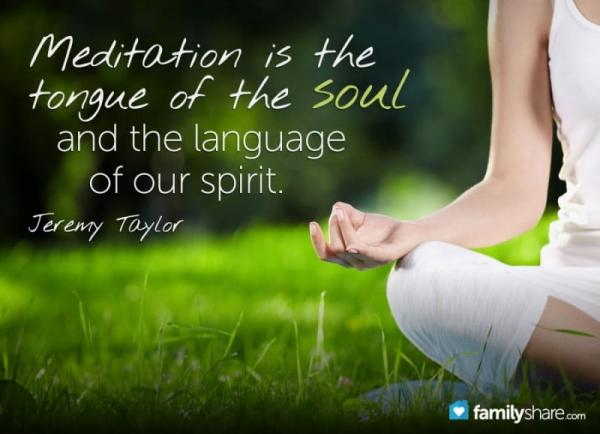
Family living can run a person ragged. Fitting in time for a little meditation between soccer practice and hours of homework help might seem like a stretch many days, but carving out time to clear your mind can boost your energy in a hurry.
Meditation may sound simple, but life comes with a host of distractions. If you find your thoughts straying to the grocery list or are constantly distracted by kids running in and out, check out these techniques to get more from your daily meditation.
Find your technique
There is an endless array of meditation techniques. Some people choose to use Eastern philosophy meditation techniques, while others gravitate toward meditating on scripture or in prayer. You can even direct your meditation energy toward sending love and positive feelings toward your family members.
Attending a yoga or meditation class can help you focus your meditation. You may even want to try a guided meditation program. If you meditate without Eastern philosophy techniques, take some time to think about your goal in meditation. Centering in on a meditation goal can revitalize your practice.
Get comfortable, mind and body
Meditation is a serious physical workout. It takes amazing core strength to sit still for extended periods of time. Find a position that works for you and your body. Whether or not you are using a traditional yogic meditation pose, let your body relax, and focus on releasing tense areas. One of the goals of traditional meditation is to enhance the mind-body connection, so don't fight what your body is telling you.
Once your body is comfortable, it's time to get your mind in an open state. The point of meditation is not to eliminate all thought, but rather to open yourself up to deep inspiration. If your meditation is overrun with mental chatter, calmly acknowledge your thoughts and dismiss them from the stage of your mind.
Reclaim intention
Meditation is not a time to check out of the world and have a little nap. Remember why you are meditating and focus your energies on meeting your goal.
If your intention in meditation is mindfulness, be open to feelings and emotions as you meditate. Don't shy away from overwhelming emotions. Embrace self-knowledge. It's hard to get to know yourself if you're never alone with your own mind. Sometimes repressed feelings come up during mediation, so don't fight it. Meditation is your safe space to process past hurts.
However, if your intention in meditation is a deeper connection with deity, keep your thoughts focused in prayer. It may help to think of mantras, writings, or scriptures associated with your belief system. These help channel your focus away from self. The key is not to let mundane, day-to-day thoughts get in the way of your meditation.
The benefits of regular meditation
There are as many good reasons to meditate as there are people in the world. Whatever your personal reason for meditation, know that you are doing your body good.
The Journal of Health Psychology released a study showing that meditation reduces cortisol, the stress hormone, in the brain. Many other studies have linked regular meditation with lower levels of depression, especially in teensand pregnant women(University of Michigan). The University of Oregon even found a connection linking meditation with lower incidence of all mental illnesses, thanks to a process called axonal density.
For a daily benefit, the University of Wisconsin found that people who regularly meditate are sick less often, and a study by the University of Utah showed that meditation leads to better sleep.
Your meditation may even be good for those around you. Both Harvard and Northeastern universities linked meditation with do-good behavior. The Journal of Psychological Science also published a study that showed practicing meditation made people more compassionate.
You can fit a short meditation into your everyday life, even with the constant time demands of a family. Taking a little time each day to feed your soul keeps you healthier, more balanced, and ultimately, happier.

